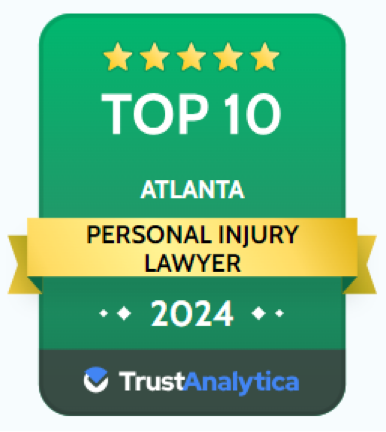All information provided about the law is very general in nature and should not be relied upon as legal advice. Every situation is different and should be analyzed by a lawyer who can provide individualized advice based on the facts involved in your unique situation, and a consideration of all of the nuances of the statutes and case law that apply at the time.
Is lane-splitting legal in Georgia?
Under Georgia law, lane splitting is illegal.
What is Lane-Splitting?
The American Motorcyclist Association defines lane-splitting as riding a motorcycle between clearly marked lanes for traffic traveling in the same direction. Also called white lining, lane splitting typically occurs in locations where a white line is on the road– hence the nickname.
Lane-splitting usually happens when traffic is at a standstill or moving extremely slowly. Lane splitting is possible due to their vehicle’s relative smallness compared to others on the road. This practice is similar to:
- Lane filtering – When a rider moves between stopped traffic or slow-moving traffic.
- Lane sharing – When multiple riders share the same lane, riding beside each other or in close formation.
- Shoulder surfing – Driving on the shoulder of the road.
A study published by the University of California at Berkeley concluded that lane splitting significantly lowers the chance of a cyclist being struck from behind by other motorists and is less likely to be injured overall. However, lane-splitting is not legal in all states.
Is Lane-Splitting Legal in Georgia?
The short answer is no. Lane splitting is not legal in the state of Georgia. Motorcyclists can, however, share a lane with a second cyclist. State law 40-6-312 sections b and c state, “the operator of a motorcycle shall not overtake and pass in the same lane occupied by the vehicle being overtaken…No person shall operate a motorcycle between lanes of traffic or between adjacent lines or rows of vehicles.”
Lane-splitting is only legal in California at this time. Other states, such as Arizona and Montana, allow similar behaviors like those mentioned earlier. Some state laws do not explicitly mention lane-splitting.
So, why is lane-splitting illegal in Georgia? The answer isn’t clear. Some people think it’s perilous, while others find it a safe practice regarding congested traffic. Whatever your opinion on the topic, you could face a hefty fine if caught lane-splitting in Georgia. You may even receive points on your driver’s license.
What Happens if I am Involved in a Lane-Splitting Accident?
If an accident involves lane splitting in Georgia, the injured party could potentially hold the motorcyclist responsible for causing the accident. However, it is crucial to understand that a motorcyclist may not always be at fault for causing an accident.
For example, suppose a vehicle attempts to change lanes directly into a motorcycle, and the motorcyclist quickly travels between lanes to avoid an accident. In that case, any resulting accident may be considered the other driver’s fault.
If you are not at fault in the incident, you may be able to file a claim if:
- The other driver failed to exercise care
- The other motorist behaved less safely than a reasonable person would have
- Someone else’s negligence was a direct cause of the accident
- You’re injured due to the collision
Remember that it isn’t always easy to determine who is at fault for causing accidents that result in significant injuries or death. Even if you are cited for lane-splitting or designated “at fault’ on the accident report, you may still have a case. A Montlick attorney can walk you through your legal options after an accident.
How useful is this for you?
Would you like to speak with an attorney?
Call NowRelated Questions
We Win More than Settlements.
We win the peace-of-mind you need to get your life back.
At Montlick, we believe comprehensive legal representation is a right, not a privilege. That’s why we provide our services on a contingency fee basis. You only pay when we win.








